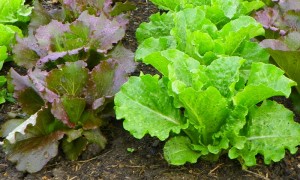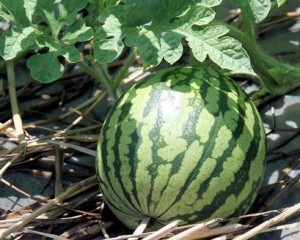Easy Vegetables and Herbs for Beginners
go.ncsu.edu/readext?203637
en Español / em Português
El inglés es el idioma de control de esta página. En la medida en que haya algún conflicto entre la traducción al inglés y la traducción, el inglés prevalece.
Al hacer clic en el enlace de traducción se activa un servicio de traducción gratuito para convertir la página al español. Al igual que con cualquier traducción por Internet, la conversión no es sensible al contexto y puede que no traduzca el texto en su significado original. NC State Extension no garantiza la exactitud del texto traducido. Por favor, tenga en cuenta que algunas aplicaciones y/o servicios pueden no funcionar como se espera cuando se traducen.
Português
Inglês é o idioma de controle desta página. Na medida que haja algum conflito entre o texto original em Inglês e a tradução, o Inglês prevalece.
Ao clicar no link de tradução, um serviço gratuito de tradução será ativado para converter a página para o Português. Como em qualquer tradução pela internet, a conversão não é sensivel ao contexto e pode não ocorrer a tradução para o significado orginal. O serviço de Extensão da Carolina do Norte (NC State Extension) não garante a exatidão do texto traduzido. Por favor, observe que algumas funções ou serviços podem não funcionar como esperado após a tradução.
English
English is the controlling language of this page. To the extent there is any conflict between the English text and the translation, English controls.
Clicking on the translation link activates a free translation service to convert the page to Spanish. As with any Internet translation, the conversion is not context-sensitive and may not translate the text to its original meaning. NC State Extension does not guarantee the accuracy of the translated text. Please note that some applications and/or services may not function as expected when translated.
Collapse ▲Many vegetables and herbs can be grown in our area, but some are easier than others. If you are a beginning gardener or are simply looking for a few easy crops, consider the following suggestions for your garden this year.
THE EASIEST HERBS
Herbs are easy to grow because they have few pest problems and are rarely bothered by deer. The key to a good herb garden is excellent drainage and lots of sun. Raised beds work well for herbs because they increase drainage and can be filled with a sandy soil mix. Mixing compost into the soil is beneficial, but fertilizers should be applied sparingly since high nutrient levels reduce flavor intensity.
Many herbs are perennial, meaning they live for several years and do not have to be replanted each season. Among the very easiest to grow are rosemary and chives. Rosemary grows into a large, evergreen shrub, often reaching 4’ in height and width. Chives are much smaller plants with tubular, grass like leaves. Oregano and sage are also undemanding, but thyme is less tolerant of summer humidity and may need to be replanted every few years. Mint is very easy to grow, but also very invasive. It should be planted in a large pot where its rapidly spreading roots will stay contained. Now is a great time to plant perennial herbs in raised beds or containers.
Basil, dill, parsley and cilantro are annual herbs. This means they live only one season and must be planted anew each year. Basil requires warm weather, while dill, parsley, and cilantro thrive in the cooler temperatures of fall and spring. Basil is very easy to grow from seed and should be planted outdoors in April, after threat of frost has passed. It does well in containers as long as it is watered regularly. Dill, parsley and cilantro can be planted outside in February or March to harvest in spring. Plants will not survive the heat of summer, but a second planting in September will provide flavorful herbs for fall and winter.
VIGOROUS VEGETABLES
Like herbs, vegetables need plenty of sun and good drainage to thrive, though they prefer richer soils and regular watering. Raised beds work well for vegetables and should be amended with compost and fertilized with a time release fertilize such as Osmocote or an organic fertilizer. If you have limited space, most vegetables grow well in large containers filled with potting soil; just remember to water them daily in the summer.
Unlike herbs, most vegetables are annuals and must be planted each season as seed or young plants. Some crops prefer cool weather and grow best in fall and spring. Some of the easiest cool season crops for spring include loose leaf lettuce, broccoli, spring cabbage, and Swiss chard, which can be planted outside now as young plants. Summer vegetables cannot tolerate cold temperatures and should not be planted until after the threat of frost has passed.
Some of the easiest vegetables to grow are vigorous warm season producers like peppers, watermelons, squash and zucchini, which yield lots of fruits over a long season. Watermelons need plenty of room to grow and are often planted on mounds spaced 6’-8’ apart. Wait until late April to set them outside. Each vine will produce 2 to 4 melons, ripening around 90 days after planting. Squash, zucchini, and cucumbers can be set out in early April but should be protected if a late frost is expected. These crops generally do very well the first part of summer but often succumb to disease and insect problems by mid July.
Peppers (both hot and sweet) and their relative, eggplant, are typically easy to grow and produce well into the fall. Tomatoes are more challenging, except cherry tomatoes which yield hundreds of small, sweet fruits throughout summer. These crops are best planted as young plants in mid April in raised beds and even grow well in large containers.
FREE CLASS
Learn lots more about growing vegetables and herbs at a free class titled ‘Vegetable Gardening for Beginners’ taught by Pender Extension Horticulture Agent Charlotte Glen, Saturday, March 16, 1:30 p.m. until 4:00 p.m. The class will be held at Wesleyan Chapel United Methodist Church, located on Hwy 17 across from Poplar Grove Plantation.
The class is free but registration is required. Call 910-259-1235 to register or register online at: http://harvest.cals.ncsu.edu/surveybuilder/form.cfm?testID=15516.
Donations to support the WCUMC community garden will be accepted. Pender Extension Master Gardeners will have their ‘Garden by the Month’ calendar ($9) and gardener’s cookbook ($10) available to purchase.
LEARN MORE
- Vegetable Fact Sheets from Clemson Extension: http://www.clemson.edu/extension/hgic/plants/vegetables/crops/
- Planning for Year Round Harvest (Pender Gardener Article): //pender.ces.ncsu.edu/2013/01/planning-for-year-round-harvest/
Visit your local Cooperative Extension office to learn more about gardening and landscape care. Go to https://www.ces.ncsu.edu/local-county-center/ to find your county Extension center.
- If you live in Pender County, call 910-259-1235
- In New Hanover County, call 910-798-7660
- In Brunswick County, call 910-253-2610
- In Onslow County, call 910-455-5873
- In Duplin County, call 910-296-2143





